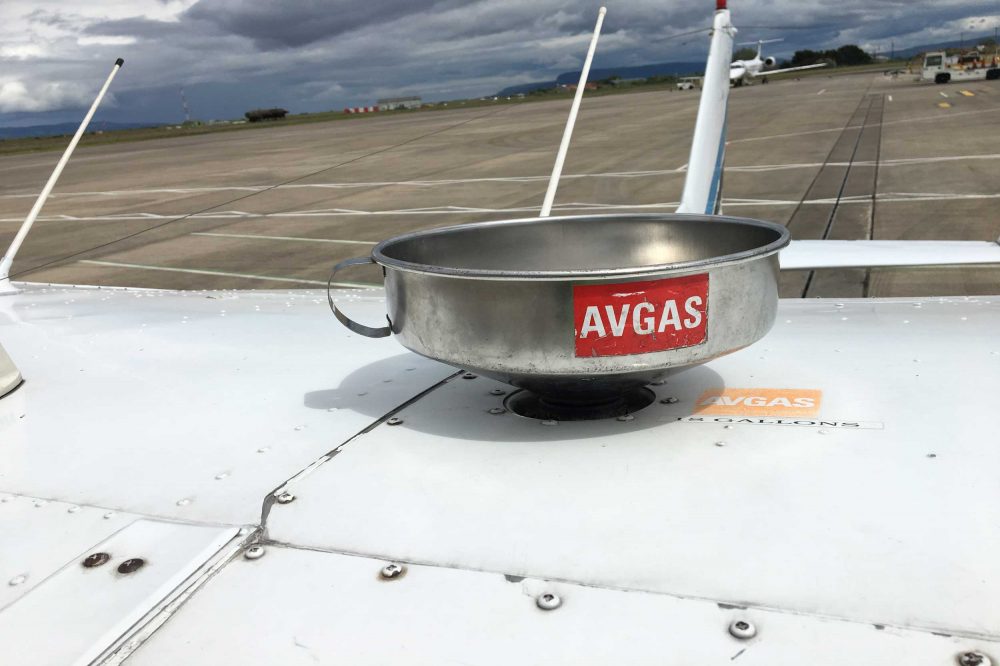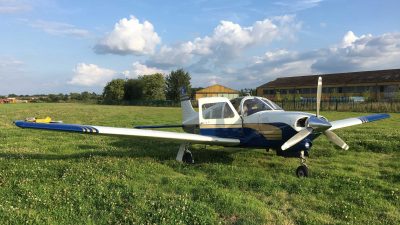Time is running out for lead in 100LL avgas. Europe is facing a ban from 2025 unless the current deadline is extended further and in the US, an ‘endangerment finding’ was published by the Environmental Protection Agency (EPA) this week which will add pressure to a ban on lead.
The EPA determined that “lead emissions to air from certain aircraft engines cause or contribute to air pollution which may reasonably be anticipated to endanger public health and welfare.”
The Aircraft Owners and Pilots Association in the US said, “The finding puts into motion a multiyear, multistep regulatory rulemaking process from the EPA and the FAA, but should have no immediate impact on the availability of 100LL at airports.”
AOPA President Mark Baker said, “We expected this finding for some time now. In essence, it mirrors the GA industry’s commitment to get lead out of avgas by 2030, if not sooner. However, it is as important to note what the finding does not mean—it does not mean that 100LL is going away before we have viable alternatives.”
The US aviation authority, the FAA, launched the Eliminate Aviation Gasoline Lead Emissions (EAGLE) initiative in 2022, working with stakeholders across aviation, to transition all piston-engine aircraft to lead-free avgas by 2030. More than 220,000 aircraft in the US require the higher octane fuel and are affected.
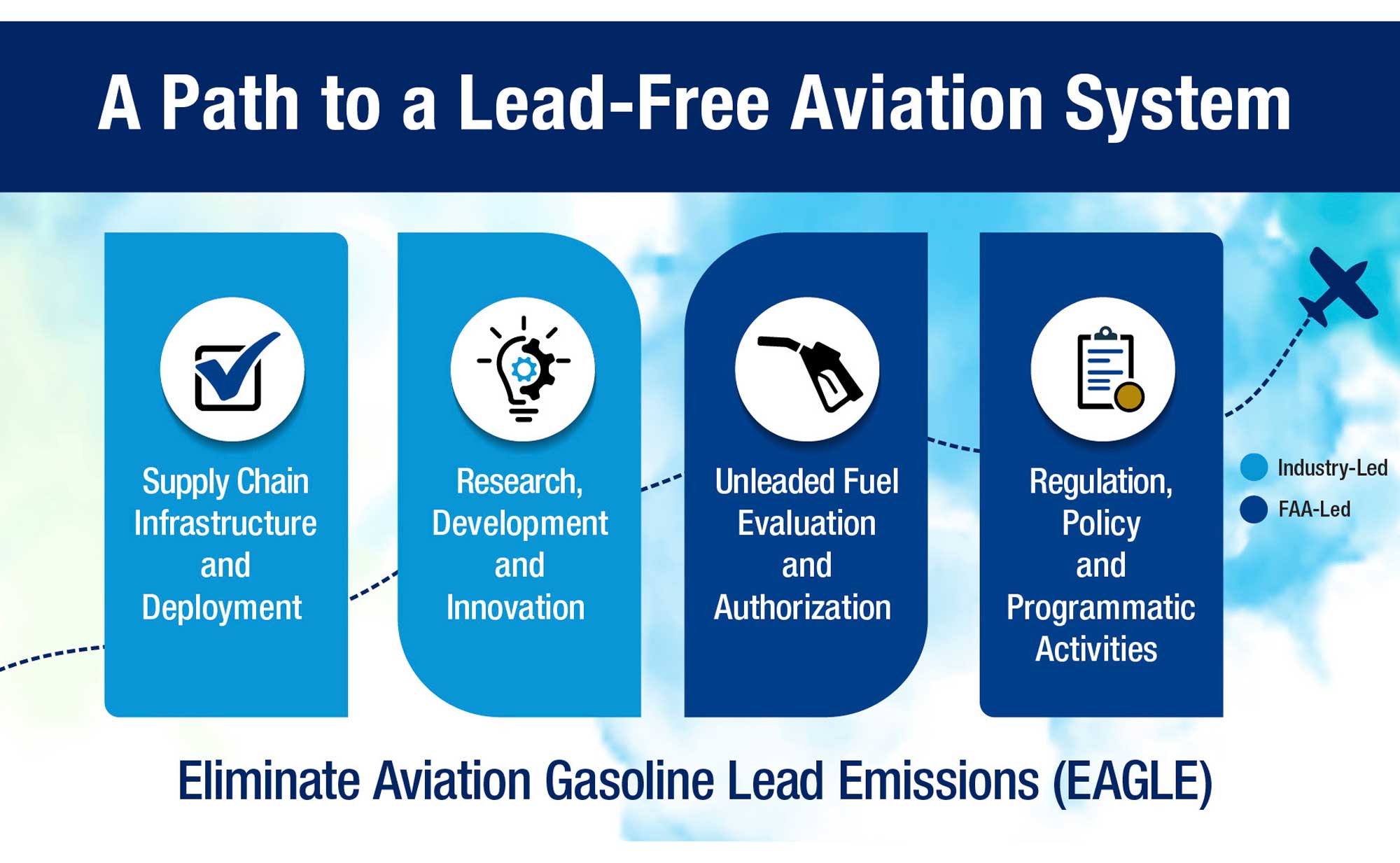
The General Aviation Manufacturers Association (GAMA) added, “We remain committed to removing lead from avgas by the end of 2030 or sooner, and are making considerable progress toward the introduction of market-viable high-octane unleaded replacement fuels that meet the safety performance needs of the entire U.S. fleet of piston aircraft.”
“It is important that the flying community and the public understand that aviation safety depends on an orderly, nationally coordinated transition to unleaded avgas. The premature removal of an essential fuel that many aircraft require for safe operation, before a replacement is available, would compromise the safety, efficiency and economic viability of the U.S. airspace and airports, the general aviation industry and transportation infrastructure.”
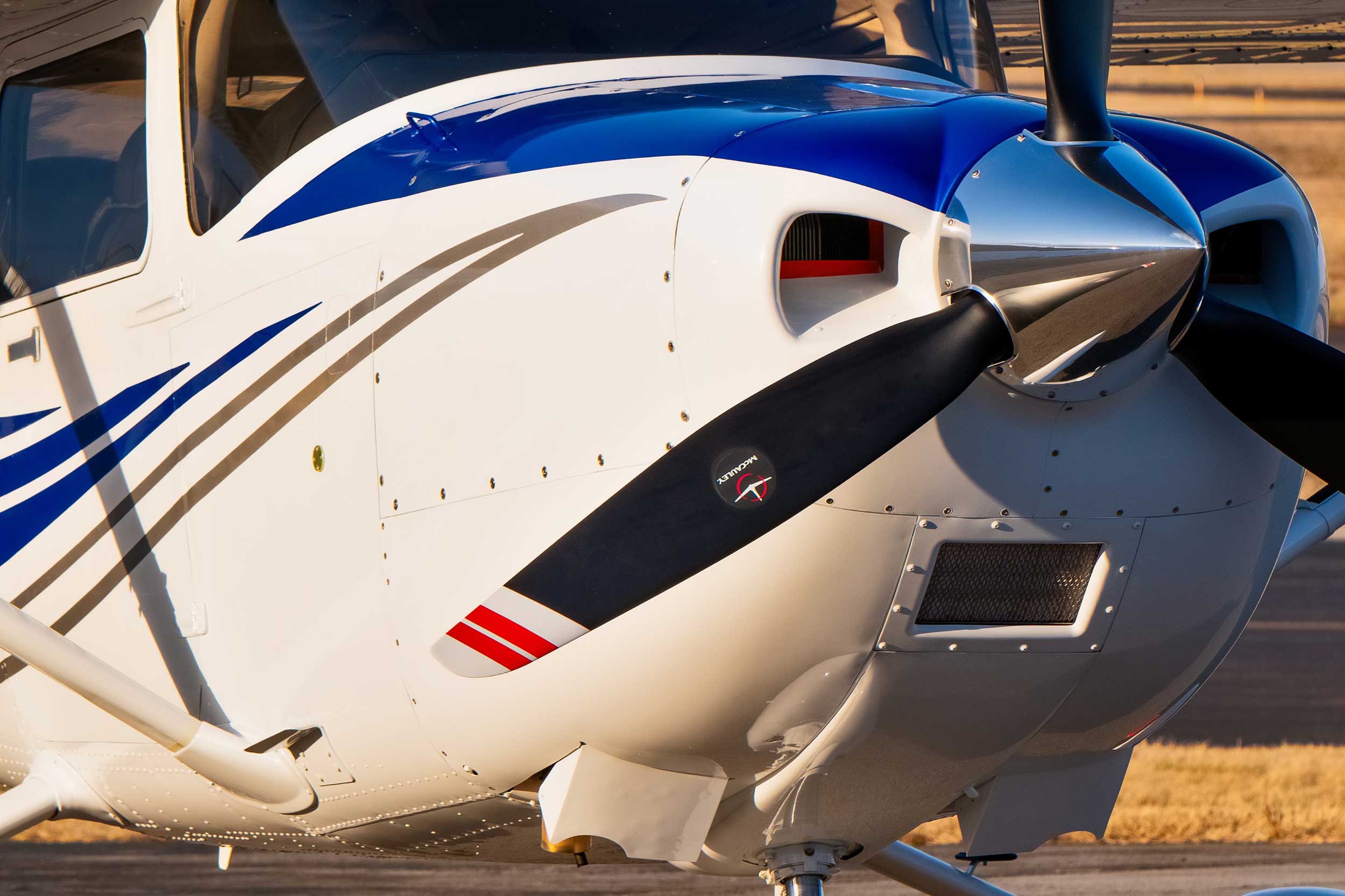
Some aircraft are fitted with engines certified for use only with 100LL avgas
Europe ban on Tetraethyllead
In Europe, the situation is more perilous with Tetraethyllead (TEL), the additive which adds lead to avgas, being added to a list of banned substances by the European Union. TEL will not be allowed to be imported into the EU which would end European production of 100LL avgas.
TEL is currently on an Authorisation List that allows it to be used until 2025. It’s not known whether Innospec, the UK based company which is the world’s sole supplier of AvTel, will apply for an extension of that date – or whether the EU would grant it. Nor do we know (despite asking) if there is any plan by fuel companies to import 100LL avgas from outside the EU.
AOPA UK has issued a position statement on leaded fuel which says that at least 70% of General Aviation aircraft can run on unleaded avgas.
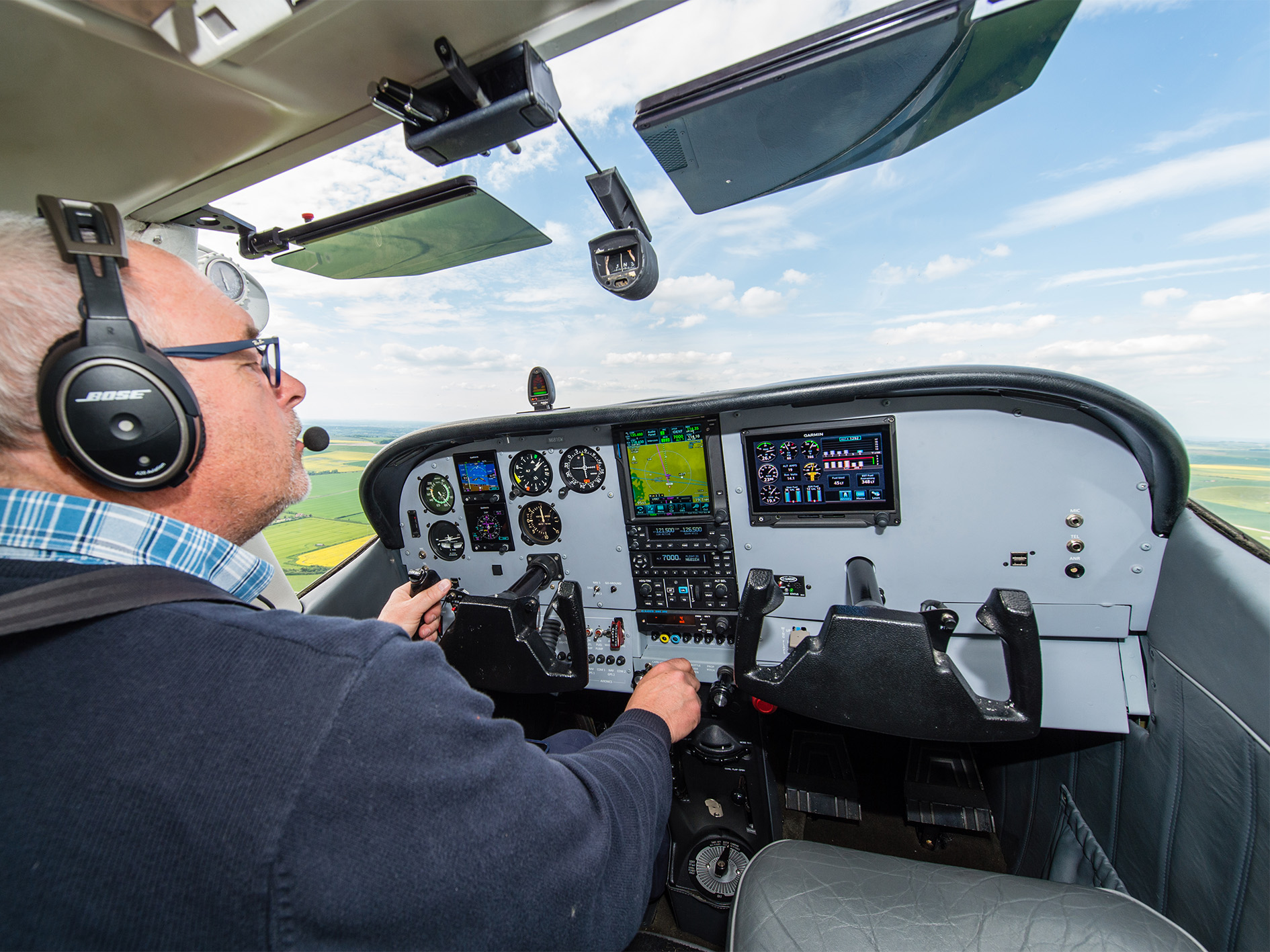
Ian and his Cessna 182
Aircraft owner Ian Seager adds:
“The road down which the leaded avgas can has been kicked is coming to an end, and as an owner of an O-470U powered Cessna 182, I’m beginning to consider my options, as I suspect are many others with engines that cannot be run on the currently available unleaded fuels.
“Information is hard to come by. Try asking the big fuel companies about their plans for a high octane unleaded future and if you’re lucky you’ll get an email declining to comment. More generally you’ll not even get that.
“I’m told that roughly 70% of the GA fleet is as happy as Larry burning unleaded, but that the remaining 30% of the fleet is responsible for 70% of the (leaded) avgas produced. That makes sense given that it’s generally the higher capacity higher powered engines that are addicted to a leaded diet, and that may well be our (my) saviour.
“The fact that the EPA has fired the starting, or (should that be finishing) gun for leaded avgas and the 2025 EU date is just over the horizon is hopefully adding urgency to the research, testing and planning that has taking place, and that will hopefully result in a viable solution that will address the 70% of avgas volume that’s at risk.”
See also:
Lead should weigh heavily on our minds
Europe moves to ban lead in avgas
It costs just £5 per month to join The FLYER Club. You’ll get access to all of our content, our free landing fees every month, the weekly members’ Livestream on Wednesdays, plus our monthly webinar. Join today by visiting flyer.co.uk/membership


